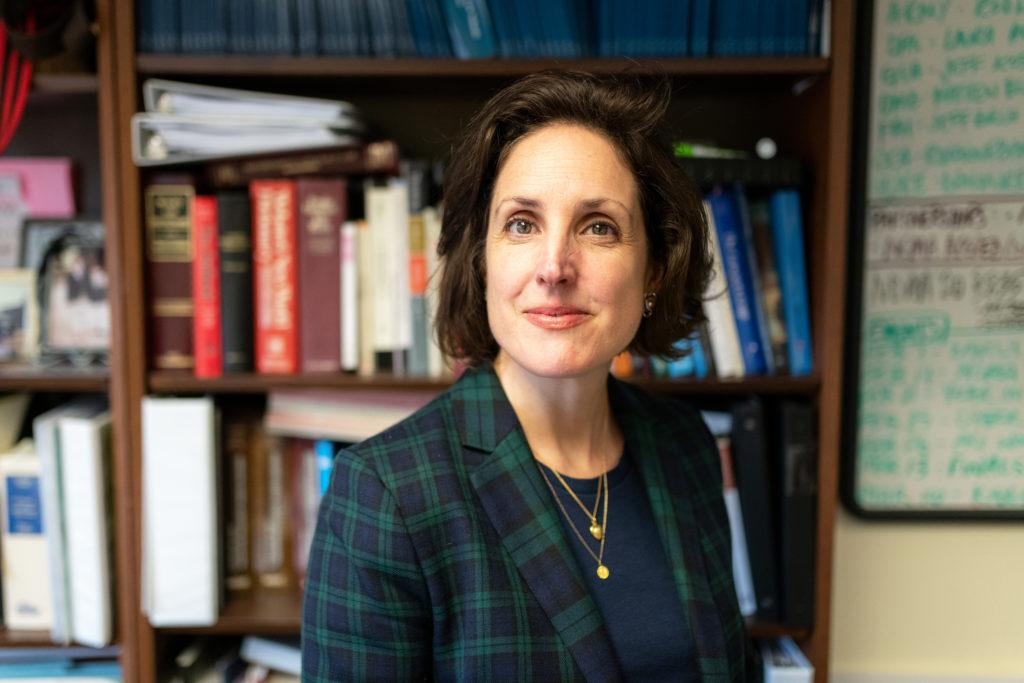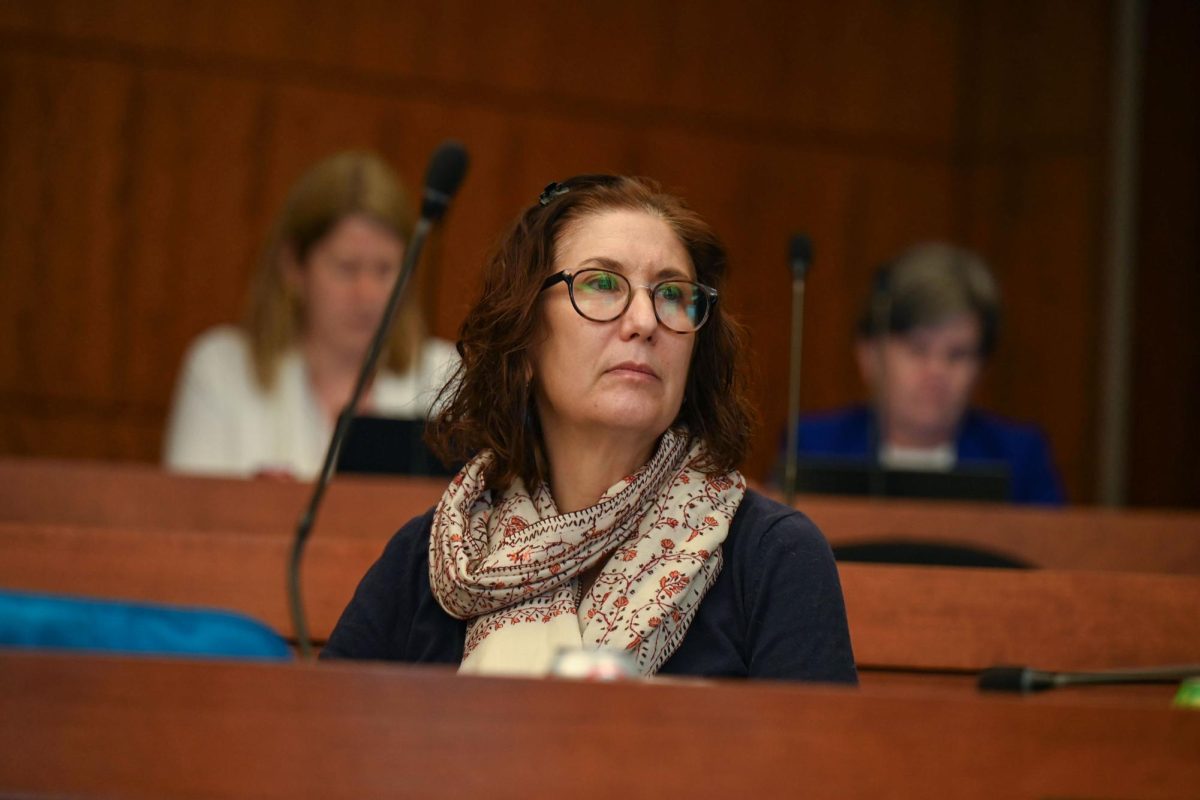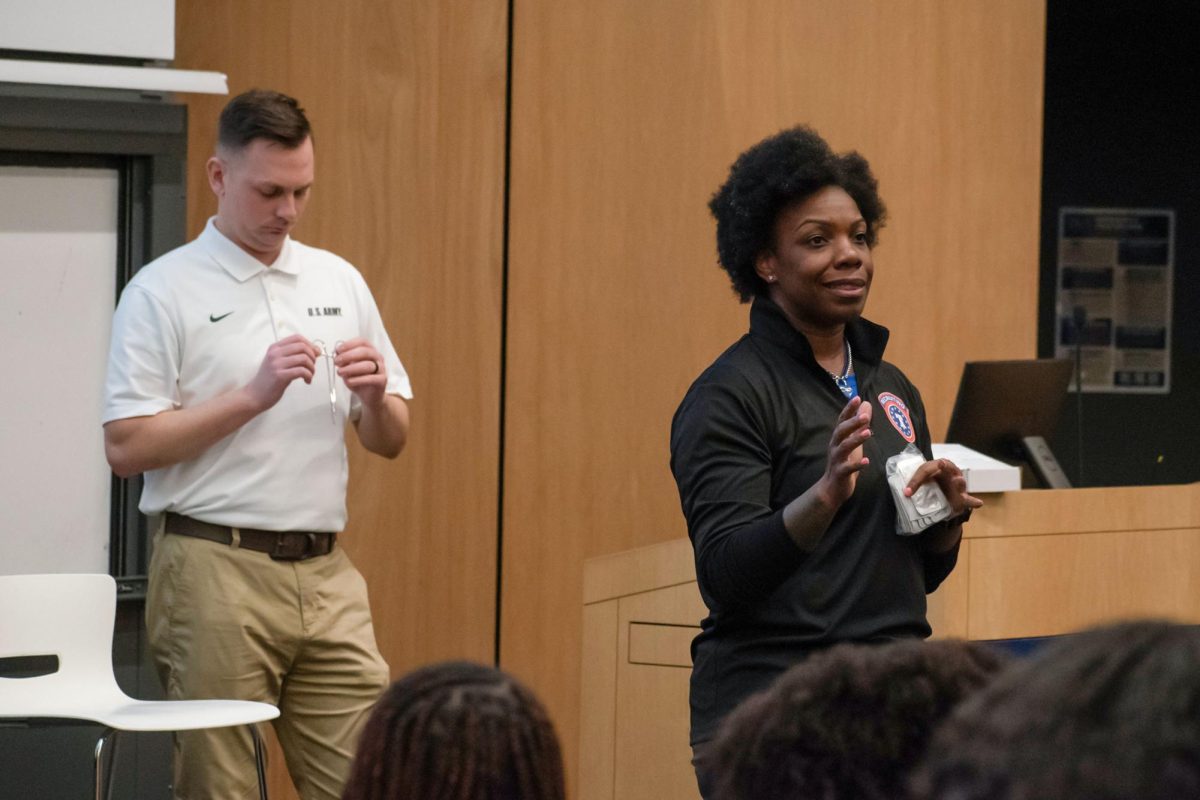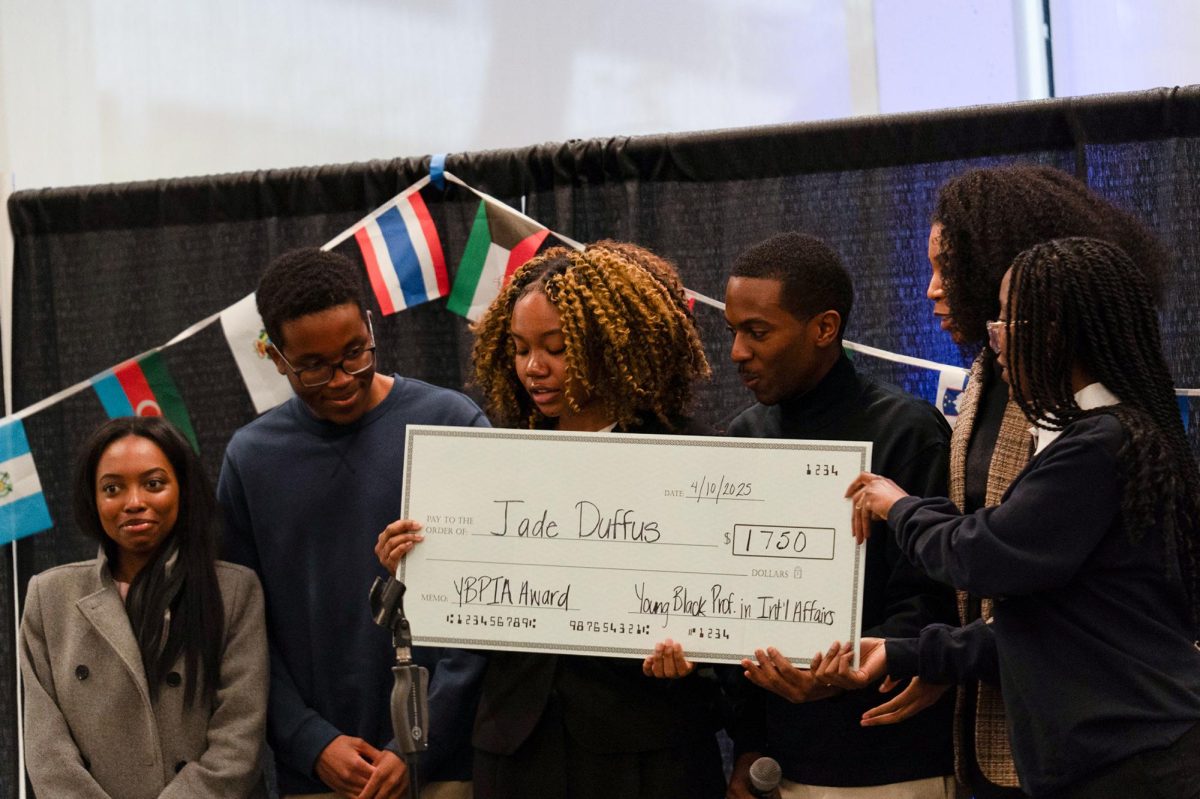A new competition is allowing students to engage in a campus-wide competition to find sustainable solutions to public policy issues.
Students are working in teams on a monthlong project to develop environmentally sound fixes to problems the public sector faces, like how best to respond to natural disasters, in the first-ever Environmentally Sustainable Procurement Policymaking Project launched early last month. Officials said the project will challenge students’ problem-solving skills and capacity to collaborate and allow them to test their own policy ideas by discussing their plan with officials who work in the field.
The project is hosted by the Government Procurement Law Program in the GW Law School and Sustainable GW.
Karen Thornton, the director of the Government Procurement Law Program, said the competition began early last month and will conclude next week. She said she was inspired to start the competition more than a year ago after reading “We Fed an Island” by adjunct professor José Andrés, a book about the chef’s efforts to provide food to Puerto Rico in the aftermath of Hurricane Maria.
She said that while Andrés’ nonprofit was able to come up with innovative solutions to feed “hungry people,” members of the federal agencies sent to help were not able to “think outside of the box” and stuck to following their own rules and procedures.
“When I read that book – I’m kind of a government contracts nerd – as I read it, I said, ‘This is actually a government contract problem,’” Thornton said.
Thornton said planning for the competition began when she met Tara Scully, the director of the sustainability minor program and a member of Sustainable GW.
“I said, ‘I’m so inspired by your work on environmental sustainability and the sustainable minor that you’ve co-created at the University – I’m working on this tiny little project,’” she said. “’I’m trying to figure out how to get started.’”
She said David Gallop, the director of the Defense Acquisition University Leadership Center – a corporate training program geared toward government contracting professionals – helped kick off the program by teaching participants a technique called the Lean startup methodology that enables people working on a startup to determine whether their idea is viable in the real world.
“We had to teach students how to think like a startup innovator before we could give them this challenge of solving these previously unsolvable problems,” Thornton said.
Thornton said she divided the roughly 20 to 25 student participants from a range of fields of study into four different teams to each tackle their own assigned problem. She said she reached out to staff who work at the General Services Administration, a federal agency that provides supplies to and conducts managerial tasks for other federal agencies, about the problems they face related to sustainability to inform the assignments.
Students from several University’s programs – including law, business and international affairs – are participating under the guidance of a coach, a faculty member or a professional with a background in sustainability or public policy, assigned to help them develop their ideas through the process. Winners will be rewarded with a $5,000 cash prize, according to the project’s website.
Thornton said students are in the “customer discovery” stage of the competition, in which they conduct 20 interviews with individuals with a background in sustainability, government contracts and related topics. She said the goal of the interviews is for each team to discuss the viability of its ideas and “fail quickly” if needed so they can revise their plans.
“That’s part of the challenge, is that we wanted the students to figure out who they needed to talk to,” she said.
Thornton said students will give a seven-minute presentation next Friday that will summarize their experience devising their proposals. She said judges will evaluate each team’s performance based on the presentation using a rubric to scrutinize participants’ collaboration and problem-solving processes.
“The judges are going to evaluate how quickly they pivoted, how well they evolved with their thinking, how well they worked together,” she said.
Thornton said the competition might be held in the future as a “capstone” for a course related to developing and testing sustainable policy solutions. She said the current competition is a “test case” to bring before the law school’s curriculum committee to potentially turn the competition into a for-credit course.
“If I can demonstrate what the learning objectives are, how we can measure the learning, how we can make this fit into the experiential learning, that we can identify specific skills for lawyers, then I think we have something that we can grow bigger,” she said.
Alan Morrison, the associate dean for public interest and public service law, said he will be one of three judges for the final presentations and will focus on how students applied the knowledge received from interviewees.
He said his judgment criteria will reward students who translated what they learned into a “viable solution” to their assigned problem.
Morrison said the participants are receiving several valuable skills like marketability that they will be able to employ in their future careers.
“Getting out of the classroom and solving real-world problems with students from other disciplines will give the students a real leg up when they start for whatever jobs interest them,” he said.
Robert Orttung, the director of research at Sustainable GW, said Thornton asked him to coach one of the teams for the event. He said the competition is beneficial because its purpose is to “bring new thinking” into procurement spaces, in which practitioners are oftentimes lacking innovative ideas.
He said his team is working on a solution to make federal buildings more energy-efficient, which would lower costs for the federal government and help the environment.
“By asking students, who obviously don’t have a lot of experience in that area, but they do have a lot of fresh thinking, to come in and look at the problem and then try and propose solutions, that might help solve that problem,” Orttung said.











